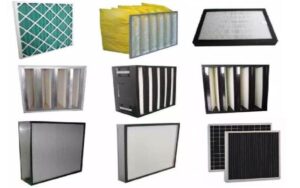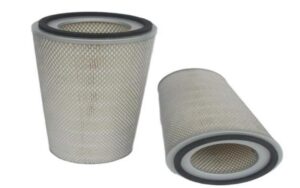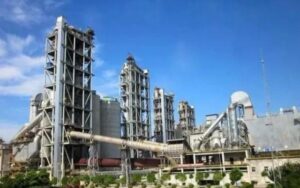Nowadays, the air you breathe isn’t just oxygen and nitrogen. It’s a mix of all kinds of stuff, like pieces of skin from pets, tiny bugs, and things that can make you worried. When you work in a factory, there’s even more junk in the air. That’s why people invented air filters and other things that clean the air. These things help get rid of the junk and make the air better.
It’s been all over the map with the people I’ve worked with. But I will say this, more and more people are asking for custom air filters. What do I mean by custom air filters? I’m not talking about the generic filters you can buy at the store that are one-size-fits-all.
I’m talking about filters that are designed and customized for you. Whether it’s for your specific needs, your environment or your preferences. Filters that are designed to fit your specific needs, whether it’s for a room with unique dimensions, specific concerns about certain contaminants or you just want it to look a certain way.
After summarizing hundreds of customization projects, I outlined some tips for customizing filters and wrote this article. The purpose is to solve potential needs and problems and help people in need.

10 Expert Tips for Custom Air Filters
Tip 1: Understanding Your Needs
When you’re choosing a custom air filter, you need to know what you’re using it for. Different situations have different needs, and it’s important to know what those needs are.
Home Appliances
From what I’ve seen with most of the people I’ve talked to, they get custom air filters for the stuff they make, and the other part of it is for special filtration like getting rid of smells or killing germs. So let’s look at some of these things and see what kind of filtration we’re talking about:
- Air Purifiers: These things are the latest and greatest in keeping the air in your house clean. Depending on what you buy and what you want it to do, air purifiers might need filters that catch everything from big pieces of dog hair to really tiny allergens. And as people start to realize how dirty the air in their houses is, more and more companies are putting activated carbon in the filters to get rid of smells. And some people are even putting coatings on the filters to do other stuff like stop mold from growing or kill dust mites.
- Vacuum Cleaners: New vacuum cleaners have these things called HEPA (High-Efficiency Particulate Air) filters that are supposed to catch more than 99.97% of pet dander, pollen, mold, and bacteria. This keeps the vacuum cleaner’s motor from getting dirty and blowing dirty air back into your house. But I think most vacuum cleaner companies make their own filters because every vacuum cleaner I’ve ever seen looks different.
- Range Hoods: These things go over your stove and suck up the smoke, grease, and smells. Even though people are used to cleaning their range hoods all the time, some companies put filters in their range hoods to catch the grease so it doesn’t get all over the inside of the range hood.
- Dehumidifiers: These things sit in wet places for a long time, and they get moldy. And you can use custom air filters to catch mold spores and other stuff to clean your air.
Industrial Settings
Different factories are different, and the air filters they use are different, too. Here are some things people make and what they want their air filters to do.
- Clean Rooms & Laboratories: In some factories, like medicine factories and places where they make computer chips, they have clean rooms. These places need really, really clean air with no tiny pieces of dirt in it. When you make custom air filters for these places, you have to make them so they catch really tiny pieces of dirt. What I’ve seen is that the main thing people want to customize is the size of the filter because clean rooms are different sizes, and they have different amounts of air blowing through them in different countries.
- Waste Gas Treatment: Some factories make stuff that’s bad for you, like places that make chemicals or work with metal. These places need special air filters. The air that comes out of these factories has stuff in it like oil mist, paint mist, and chemicals. You can use custom metal filters or fiberglass filters to clean this air.
- High-Temperature Environments: In some factories, like places where they bake stuff, make heat, treat stuff, make medicines, or do other special things, the air filters have to work when they get really hot. So you need special stuff in the filters, like special glue and special separators, to make sure the filters can handle the heat. And all this stuff has to be made special for each factory.
- Heavy Machinery & Equipment: Some machines, like construction equipment and mining equipment, get really dirty because they’re in dirty places. The air filters they use in these machines have to be really strong so they don’t fall apart, and they have to be able to catch big pieces of dirt without getting all clogged up. Most of the time, the air filters you use in these machines act as air intake filters.
- Chemical Processing Plants: Some factories make stuff that’s bad that you don’t want, like places that make chemicals. These places need special air filters. The air that comes out of these factories has stuff in it like VOC and chemicals. You can use custom activated carbon filters or fiberglass filters to clean this air.
- Food & Beverage Industry: If you’re making cookies or bread or something like that, you need to have filters to catch the grease when you’re cooking. There aren’t a lot of people who need air filters for this, but the people who do need them really need them.
Tip 2: Material Matters
Based on what’s going on in the filter business right now, I think you can put filter materials into these groups. Let’s look at how they’re different so you can pick the right material when you custom your own filters.
Glass Fiber
- Efficiency: Fiberglass filter paper is the best at catching particles because the fibers are super small. You can use it in HEPA and ULPA filters because it can catch particles that are 0.1 to 0.3 microns big.
- Temperature Resistance: Glass fiber can handle high temperatures, so all high-temperature resistant filters use filter paper made of glass fiber.
Cons: Strong rigidity and difficult to process.
Synthetic Fibers
- Easy to Process: Synthetic fibers are flexible and can be made into pleated or HVAC filters, so they’re good for different filtration needs.
- Color Customization: They can be dyed in a wide range of colors, so you can make them look however you want. That’s especially important if you’re using them in a place where you care about how they look.
- Blending Capabilities: Synthetic fibers can be blended with other materials to make a better filter. You can combine different materials to get the best of both worlds.
Cons: It’s relatively expensive.
Activated Carbon
- Getting rid of smells: Activated carbon is the best at getting rid of smells. It can take care of all kinds of odors, from cooking smells to chemical fumes.
- Getting rid of chemicals: After you treat it with chemicals, activated carbon can also grab certain chemicals and gases and clean up the air.
Cons: It doesn’t trap dust.
Metal Mesh
- Durability: Metal mesh filters are tough, don’t rust, and can handle a lot of air, so they’re great for dirty, industrial places.
- Washable: You can clean a lot of metal mesh filters and use them again, so you don’t have to buy new ones all the time. That saves you money.
Cons: They only get rid of big dust and stuff.
PTFE (Polytetrafluoroethylene)
- Chemical Resistance: PTFE is really good at resisting chemicals, so it’s great if you’re worried about chemicals.
- High Filtration Efficiency: PTFE has really small holes, so it’s great at getting rid of tiny stuff.
Cons: It’s expensive.
Tip 3: Easy to Maintenance
When you’re customizing filters, think about how easy it is to change them and take care of them. Also, think about how often you’ll have to clean them and how much it costs to keep the system running.
Easy to Change
- Easy to use: When you’re making a custom filter, think about the person who’s going to use it. You want to make it easy to get to, with clear instructions and a step-by-step guide. It should be so easy that anyone can do it, even if they don’t know anything about filters.
- A quick-change thing: In places where you need to get stuff done fast, like factories or places where time is important, it’s great if you can change the filters fast. You take the old one out and put the new one in really quickly, so you don’t waste time.
- Things you can put together: Some really good air filter systems are made in pieces. You can put them together with other stuff to make it even better. I’ve noticed that when you do that, people want to buy it even more.
Tip 4: Consider Filter Efficiency Ratings
Custom air filters come in different levels of good. These levels are the same for everybody and tell you how good the filter is. That way, you can pick the right filter for what you need. Let’s take a quick look at what each level means.
Minimum Efficiency Reporting Value MERV
- Let’s talk about MERV: MERV ratings go from 1 to 20. The higher the number, the better the filter is at getting rid of small stuff. For example, a filter with a MERV rating of 1-4 gets rid of big stuff like dust from sanding. A filter with a MERV rating of 13-16 gets rid of bacteria and smoke from cigarettes.
ISO 16890
- Global Air Filtration Standard: There’s this rule called ISO 16890. It tells you how good an air filter is at stopping little things. It tells you how good the filter is at stopping PM1, PM2.5, and PM10.
- How It Works: When you test an air filter, you test it with three different sizes of things. Then, you say how good the filter is at stopping each size. For example, if a filter stops more than half of the PM1 things, you say it’s ePM1 50%.
EN 779
- European Standard: Before ISO 16890, people in Europe used a different rule called EN 779. It told you how good an air filter was on average. You could say a filter was G1, G2, G3, G4, F5, F6, F7, F8, or F9.
- Transition to ISO: Now that we have ISO 16890, we don’t use EN 779 anymore. But you might still see EN 779 sometimes. That’s because some people still use old stuff or they live in a place where they use EN 779.
EN 1822
- High-Efficiency Filters: There’s another European rule called EN 1822. It tells you how good a filter is at stopping really tiny things. You use EN 1822 for HEPA and ULPA filters.
- Classification: When you test a HEPA filter, you test it with the hardest size of thing to stop. Then, you say how good the filter is. You can say a filter is H10, H11, H12, H13, or H14. If you have an H14 filter, it stops 99.995% of the hardest size of things to stop.

Tip 5: Think about what you need the filter to do
A lot of the filters I sell are special. That means people want the filters to do extra stuff. They need the filters to do things that regular filters don’t do.
Get rid of viruses.
Lately, things have been crazy. There are more and more viruses. So, when you make a special filter, you should make it so it can get rid of viruses.
- Antiviral filter paper: Some people put copper or silver in the paper to kill viruses. Other people put something called electrets in the paper to kill viruses. All these things are good, but you have to think about which one is best for you.
- Antiviral Coatings: Some people put stuff on filters that can kill viruses. When the virus touches the filter, it dies. That makes the filter even better at stopping viruses. But you have to think about how long the stuff will last.
Heavier Air Filter
In some places, like the desert or the ocean, the wind is really strong sometimes. So, if you’re using a filter outside, you have to put something heavy on it. That way, the filter doesn’t blow away.
Online Monitoring
Some people want to put a sensor on the filter. Then, they can check the filter on the computer. You only need to do this if you really care about the air.
Tip 6: Consider Air Filters’ Frame or Housing
The frame or box that holds the filter is important. It holds the filter and makes the filter strong.
Metal Frames
- Durability: The frame is usually made of metal. You can use aluminum, steel, or stainless steel. Metal frames are really strong. They don’t break easily.
- Heat Resistance: If you need a filter for a really hot place, you use a metal frame. Metal frames are good for things like factories or special machines that get really hot.
- Chemical Resistance: Stainless steel doesn’t rust. So, if you work in a place with a lot of chemicals, you use stainless steel.

Plastic Frames
- Lightweight: Plastic frames are usually lighter than metal frames, so they’re easier to handle and install.
- Versatility: They can be shaped into different shapes and sizes, which gives you flexibility in design.
- Custom Molding: You may need custom molds for unique or specialized filter designs. This lets you customize them exactly how you want, but it might cost you extra. Plus, this is tied to how many filters you’re ordering or the minimum order quantity.
Cardboard Frames
- Light: Cardboard frames are light and easy to move and replace.
- Cost-Effective: They’re usually cheaper than other materials, so a lot of people use them for filters you throw away.
- Limitations: Cardboard isn’t as strong as other materials and might not be good for places that are wet or where you need a frame that lasts a long time.
Tip 7: Think about how much energy it uses
In today’s world, where saving energy is important for both money and the environment, how much energy your custom air filter uses is really important. Here’s what you need to think about:
Operational Costs
- Energy Efficiency Saves Money: In heating and cooling, air filters that don’t slow down the air let it move better and can make the whole system use less energy, which can save you money on your electric bill.
How Long Your System Lasts
- How Hard Your System Has to Work: Filters that let air move better make your heating and cooling system or whatever other machine you’re using not have to work as hard. This can make the whole system last longer, so you don’t have to fix it or get a new one as often.
Being Good to the Environment
- Doing Things That Are Good for the World: Saving energy is good for the environment, which can be a selling point for your companies and make you feel good if you’re a homeowner.
How Well It Works and How Good You Feel
- How Quiet It Is: A lot of air purifier companies already talk about how quiet their machines are. This has to do with how much the filter and the motor slow down the air. They usually do a good job with this. Just think about how big it is and how well it works when you’re getting a custom air filter like this.

Tip 8: Think about how it looks
When you’re getting a custom air filter, how well it works is the most important thing. But how it looks is important in a lot of situations, especially if people can see the filter or if it’s part of something people buy. This is something I’ve done a lot of work on, like with vacuum cleaner filters and air purifier filters. So here’s what you should think about:
- Matching Your Brand: For businesses, you can design the air filter to match your brand colors, logos, or themes. This way, you get to show off your brand and make everything look nice and neat in your commercial spaces or products.
- Matching the Look: In a home, you can design your air filter to match the style of your house, especially if you have a stand-alone air purifier. You can make custom filters that match or contrast with the look of a room, so they don’t look out of place.
- The Way It Feels: A well-designed filter or housing can make your experience better and look good at the same time. Think about things like easy-to-understand markings, handles that are easy to take off, and places you can touch that make it easy to take care of.
- Being Seen vs. Being Hidden: You can see terminal filters a lot, especially in industrial places. A lot of HEPA filters are put in the ceiling. You should know that they put gaskets and nets on the air coming out of the filter to make sure it’s sealed up and to protect the filter material.
Tip 9: Work with Truly Professional Manufacturers
I’ve said it before, but I’ll say it again: Only the companies that can really customize things can do what you want. You need people who know what they’re doing, have done it before, and have the right tools and equipment. Not just anyone can do it.
Knowing What They’re Doing
- Knowing How to Do It: The people who make filters know all about how filters work, what they’re made of, and what you’re expecting. So, they can do what you want and sometimes even make suggestions to make things better, which is good for you.
Being Able to Do What You Want
- Making Something Just for You: Not everyone can make a filter from scratch. The people who know what they’re doing have the right tools and equipment, like special computer programs and machines, to make what you want.
- Using All Kinds of Materials: The people who make filters know about all the different materials you can use, from the normal ones to the really special ones. They can even make new materials if they want to. But, remember, you might have to buy a certain amount.
- Making a Mold: Sometimes, you have to make a special mold to make a plastic frame. I’ve seen people who even have their own machines to do that, which is a lot of money.
Working Together
- Open Communication: When you work with people, you need to talk to them and be honest. That’s how you get things done and make everyone happy.
- After-Sales Support: When people sell you something, they have to take care of you after you buy it. That’s how you get a good business. You need to ask the seller about this service.
Tip 10: You Have to Make Sure It’s Good
I have to talk about quality control. After they make the filter, they test it. That’s the most important thing they do before they send it to you. You should ask for a test report to make sure it’s good.
Making Sure They’re All the Same
- Uniform Performance: When you buy a lot of filters, they all have to work the same. They have to be good, from the first one to the last one. Manufacturers make sure of that by checking them a lot.
- Batch Testing: The people who know what they’re doing will test filters from different groups to make sure they’re all good.
Money Matters
- Avoiding Recalls: If you have a business and you have to take back a lot of filters because they’re bad, it costs a lot of money and makes your brand look bad. You can stop that from happening if you’re really careful.
What People Think of You
- Brand Image: Making a good brand is hard. You have to be good. Then, people will say nice things about you and trust you.
Breathing Easier with Our Filters
But it’s not easy to make a special filter. That’s why you need koinfilter. We know how to make custom filters, we know how to make things just for you, and we make sure everything is good. You can trust us.






